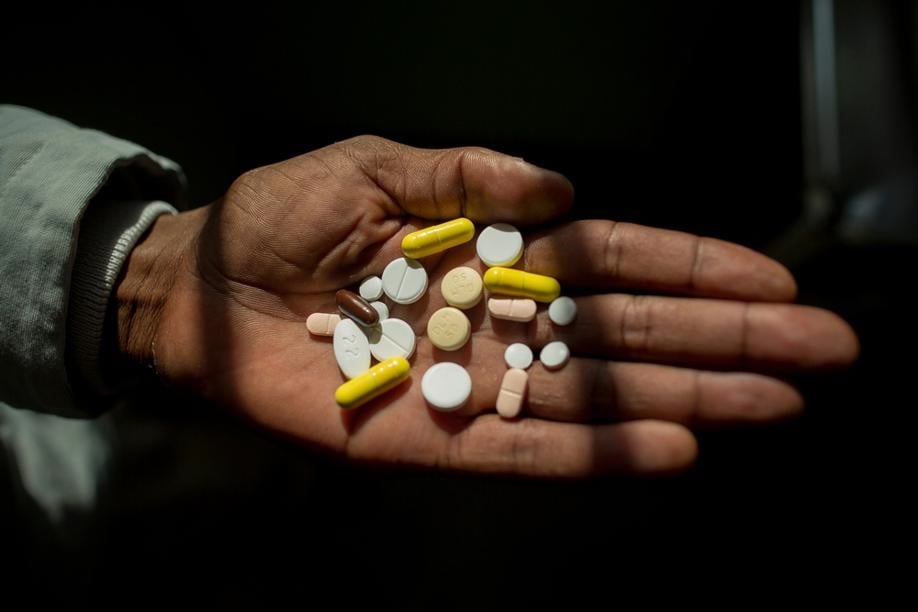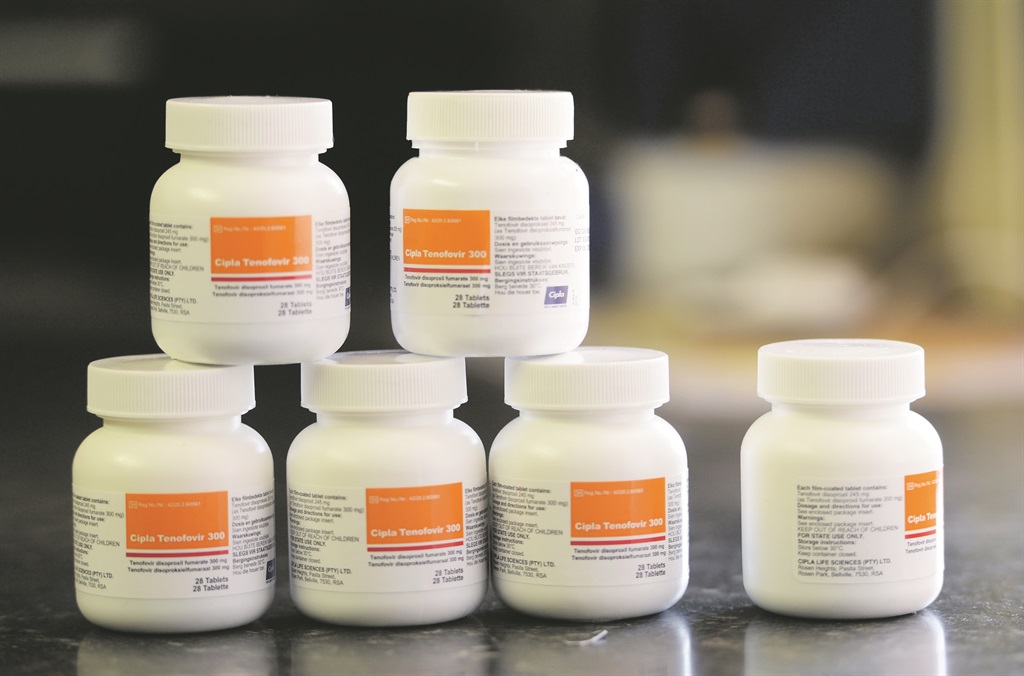
How might Covid-19 exacerbate medicines shortages in South Africa and what measures are in place to mitigate the impact of shortages. Catherine Tomlinson investigates for Spotlight.
Measures taken to curb the spread of the Covid-19 coronavirus in China have had successes in averting new cases and slowing transmission. They have also exposed deep vulnerabilities in global medicine supply security due to our extensive reliance on China for the ingredients that make our drugs effective.
Containment measures implemented in China have disrupted manufacturing and transit of medicines and APIs, threatening dangerous supply shortages.
Yet, medicine shortages are not uncommon or new and, according to available data, appear to be increasing in frequency. The persistent challenge of medicine insecurity requires proactive action by national health and regulatory authorities to predict shortages and mitigate their harms.
Where your medicine comes from?
Take a look in your medicine cabinet. Do you know where your medicines are made? India, South Africa, Switzerland, Israel, the United States? Beyond that, do you know where the active pharmaceutical ingredients in your medicines come from? Active pharmaceutical ingredients – commonly known as APIs – are the ingredients in medicines that make them work. They are the ingredients in medicines that prevent, control or cure the illnesses or conditions for which medicines are prescribed.
Regardless of where your medicines come from, the answer regarding the origin of their APIs is most often China.
Chinese manufacturers dominate the global market for APIs and companies in India, South Africa, the United States and beyond rely on exports from China for these critical ingredients.
Given our reliance on China for APIs, containment measures implemented in the country to curb the spread of Covid-19 (including the shuttering of manufacturing plants and closing of crucial transit routes) may imperil global medicine supply security.
The United States has already announced shortages of one (unidentified) medicine due to Covid-19 and noted that it is closely monitoring 20 other drugs for which APIs or finished products are sourced exclusively from China.
The European Union formed an Executive Steering Group to “identify and coordinate EU-wide actions to protect patients when medicines in the EU are at risk of supply shortage, for example due to a temporary lockdown of manufacturing sites in areas affected by Covid-19 or travel restrictions impacting shipment.”
And, India, which supplies most of the world’s generic medicines, has already begun to place export restrictions on drugs for which it is unable to source adequate APIs from China.
The scale of possible medicine shortages that may result from Covid-19 remain unclear, given uncertainty regarding how the disease will progress, how countries will respond, and even the full extent of our global reliance on China for medicine APIs.
In October 2019, the Food and Drug Administration’s Dr Janet Woodcock testified to the US Congress that “data available to the FDA do not enable us to calculate the volume of APIs being used for US-marketed drugs from China or India, and what percentage of US drug consumption this represents.”
How authorities are responding
Health authorities and regulators around the world are now scrambling to assess their exposure to Covid-19 related medicine supply shocks and to identify the best ways to minimise harms to their populations.
There are various tactics that health authorities can employ to prevent shortages or minimise their harms. Tactics include stockpiling medicines or APIs, identifying alternative medicine or API suppliers and, when necessary, fast-tracking their regulatory approval, authorising the importation of unregistered products, substituting products with equivalent clinical indications, providing guidance to encourage rational prescribing, and prioritising medicine access for the most vulnerable.
“If the situation persists, medicine shortages are a foregone conclusion,” says the national department of health’s director of affordable medicines Khadija Jamaloodien.
She added that the department was working to identify which medicines used in the public sector may face Covid-19 related shortages and provide alternatives as necessary.
The department convened a meeting of all companies contracted on tender to supply medicines to the public health sector on February 14 to assess potential supply threats. Suppliers were subsequently asked to provide additional information on supply availability and threats to the department in a standardised template. According to Jamaloodien, the department was busy analysing the feedback received from companies and further public communication may be forthcoming.
Jamaloodien added that the department’s “biggest concern” is ensuring the availability of antiretroviral treatment. More than five million people in South Africa take a daily combination of lifesaving ARVs to protect their health and prevent ongoing transmission of HIV.
In addition to Covid-19 related manufacturing interruptions, the experimental use of ARVs in some countries to treat Covid-19 will strain global ARV supply.
Another category of medicine for which supply concerns have been raised is antibiotics, given their essential role in enabling a functioning health system and preventing common bacterial infections from progressing into life-threatening conditions. China produces more than 80% of the ingredients used in antibiotics globally and India has already begun to restrict exports of several antibiotics due to concerns regarding API supply.
Not a new problem
While Covid-19 is expected to place extraordinary strain on medicine supply chains and will require special and emergency responses by governments to minimise harms, medicine shortages are by no means a new or uncommon phenomenon.
Several research studies have demonstrated that medicine shortages are routine events in both developed and developing countries and appear to be increasing in frequency.
Medicine shortages may result from a myriad circumstances, including climate, social and health-related manufacturing and transit disruptions, shifting trade relations and rules, API shortages, unexpected surges in demand, and regulatory events. Medicine shortages also commonly occur due to the decisions of companies seeking to maximise profitability to terminate production of certain drugs or supply of certain markets viewed as insufficiently profitable. Sadly, the drugs abandoned by industry are all too often products that are critical to public health – such as vaccines and antibiotics.
In South Africa, health systems challenges, including inaccurate forecasting of need and delayed payment of suppliers, commonly exacerbate supply challenges.
Early warning systems
Persistent drug shortages require countries to establish systems to anticipate and communicate pending shortages. Several countries, including the United States, Australia and Canada, have adopted legislation mandating that medicine suppliers report medicine shortages and withdrawals to their national regulatory authorities.
These countries have also developed online databases to share data on medicine shortages and withdrawals with the public.
Although there is clearly room for improved transparency, as the FDA recently refused to disclose which drug on its shortage list is a result of Covid-19 after announcing a Covid-19 related shortage.
Clear communication and transparency regarding medicine shortages and withdrawals is necessary to enable an effective response to reduce and prevent related harms.
Transparency allows providers, pharmacists and patients to anticipate and prepare for medicine shortages. It allows patient groups to develop effective and informed messaging to support patients through shortage related events – such as the substitution of antiretroviral medicines during shortages in line with clinical guidance. Transparency can reduce confusion, panic and potentially harmful medicine stockpiling.
Finally, transparency enables domestic and cross-country research on the causes and extent of medicine shortages, as well as collaborative engagement towards joint solutions.
While health authorities have several tools to mitigate the potential harms of medicine shortages, it is unclear what options are available to developing countries to ensure medicine supply if shortages result in a global bidding war in which the countries with the deepest pockets scoop up available supply.
Limited legal framework in SA
Unlike many other countries, South Africa does not have legal obligations mandating that drug suppliers report medicine shortages and withdrawals to its regulatory authority. In the absence of these obligations, the health department has enacted several measures to forecast, monitor and communicate shortages of medicines procured for use in the public sector. Many of these measures were taken following reporting of widespread public sector medicine shortages in South Africa by the Stop StockOuts Project and the media in 2015.
A key measure enacted by the department to monitor supply and forecast shortages, was the inclusion of requirements in tenders for suppliers to promptly notify the department of any conditions that may delay timely delivery of medicines. Tender contracts also include provisions enabling the department to penalise suppliers unable to meet contract terms, including through the termination of contracts.
In addition to contract clauses, the department launched a Pipeline Analysis Tool together with the Clinton Health Access Initiative in 2015 to collect and collate date on supply availability. The tool is designed to enable the department to scrutinise what is “coming down the line” and identify potential supply challenges.
As part of this initiative, suppliers are required to provide fortnightly reports on their production, stock on hand, outstanding orders and expected lead times.
According to Jamaloodien, the health department does not share the full scope of data provided to it by companies with the public as it does not want to erode their trust and disincentive openness. The failure of some companies to provide timeous reports to the department remains a challenge.
Although the department does not publicly share the full scope of data collected from companies, it routinely publishes a “hot list” of medicines “where the interventions implemented [by the department] may not have been able to avert a shortage and reflects those medicines which manufacturers have been unable to supply.”
The February hot list, which is available on the department’s website, lists more than 50 medicines (some with more than one dosage or formulation) for which there is a shortage of supply. The most common reasons cited on the list for the shortages are manufacturing and supply constraints.
While the department’s hot list provides important transparency on medicine shortages faced in the public sector, it does not enable stakeholders to anticipate stock outs before they hit. It also provides little information on the cause of shortages or their expected length.
In the private sector, which accounts for around 80% of total medicine expenditure in the country, there is no coordinated shortage monitoring system in place.
Potential solution
One potential solution would be for the South African Health Products Regulatory Authority to establish a mandatory reporting scheme that would extend monitoring to all medicines marketed in the country, while also bolstering the health department’s ongoing efforts to obtain relevant supply information from companies.
However, in response to questions posed to the authority regarding the establishment of a mandatory reporting obligation and related public database by the authority, Spotlight was referred back to the health department for questions regarding “forecasting, monitoring and communicating medicines shortages”.
While medicine shortages are common, Covid-19 threatens to increase the scale and scope of shortages faced globally. Health authorities will likely need to employ a range of actions to mitigate the harms of disruptions. Yet, in order to identify actions that can mitigate harms, it is necessary to understand where supply is available and where vulnerabilities exist.
The department is working to identify threats to public sector supply, but faces challenges, and in the private sector no coordinated monitoring system exists.
The health authority can play an important role in shoring up South Africa’s mechanisms to forecast and address medicine shortages through the establishment of a mandatory reporting scheme.
*This article was produced by Spotlight – health journalism in the public interest.




 Publications
Publications
 Partners
Partners










